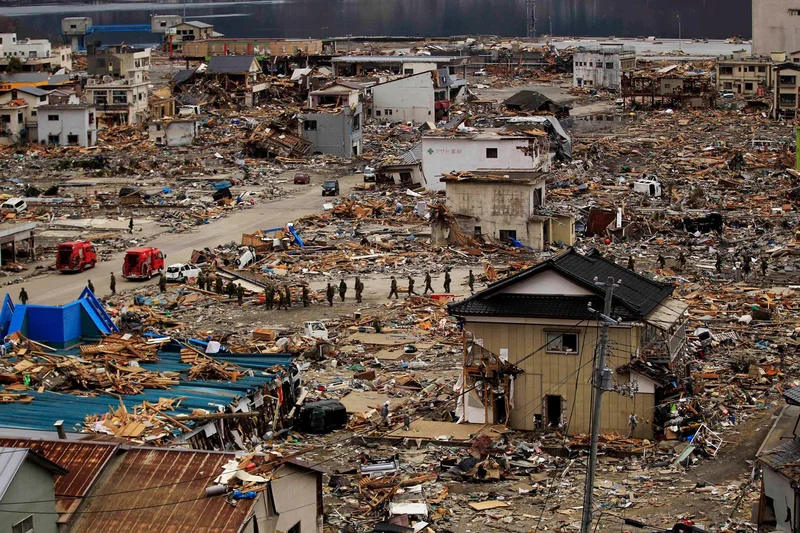Alright, let's get this straight. Another hurricane, another disaster, another round of "thoughts and prayers" while the Caribbean gets absolutely hammered. We're talking about Hurricane Melissa, a freakin' Category 5 monster that just steamrolled Jamaica, Cuba, and Haiti. But here's the thing nobody wants to admit: this ain't a one-off. It's a preview of what's coming for everyone living near a coastline.
The Disaster Feedback Frenzy
The real kicker? These islands weren't exactly sitting pretty before Melissa showed up. Jamaica was still picking up the pieces from Hurricane Beryl in 2024. Cuba's power grid was a joke after Hurricane Oscar. And Haiti? Let's not even start on Haiti. That place has been in a perpetual state of crisis for, well, forever.
This is what some egghead academic calls a "compounding disaster trap." Sounds fancy, right? Basically, it means the time between disasters is shrinking faster than my patience for politicians who claim to care. As explored in No time to recover: Hurricane Melissa and the Caribbean’s compounding disaster trap as the storms keep coming, the Caribbean is facing an increasing frequency of devastating storms.
Think of it like this: you're trying to bail water out of a sinking boat, but someone keeps drilling new holes in the bottom. Infrastructure collapses, economies tank, and people just up and leave. It's a vicious cycle, a disaster feedback frenzy.
And who pays the price? The people who can least afford it.
Debt, Destruction, and Despair
Let's break down this "trap," shall we?
First, you've got infrastructure collapse. One thing goes down, and suddenly everything else follows. Power goes out, then the water pumps, then the hospitals... it's a domino effect of doom. We're not talking about a few downed power lines; we're talking about entire systems failing simultaneously. Makes you wonder if anyone's actually learning from past mistakes.

Then there's the economic debt spiral. These countries are borrowing money just to rebuild after each disaster, racking up debt that's bigger than their entire GDP. Hurricane Ivan cost Grenada over 200% of its GDP back in '04. Maria cost Dominica 224% in '17. Dorian cost the Bahamas 25% in '19. And Melissa? Well, the numbers aren't in yet, but I'm betting it's not gonna be pretty. And of course, because they are in debt, who's gonna give them a good loan? No one.
Oh, and don't forget the social erosion. People are fleeing these islands in droves, tearing apart communities and leaving behind a legacy of trauma. More than 200,000 people bailed on Puerto Rico after Maria. Nearly a quarter of Dominica's population did the same. You can't rebuild a country when everyone's running for the exits.
It's a perfect storm of suck, and these islands are stuck right in the middle of it.
"Solutions" and Wishful Thinking
So, what's the answer? According to the experts, we need "adaptive recovery at all levels." Whatever the hell that means. More cash handouts, mental health services, and fixing the "social fabric." Sounds nice, but it's not exactly a groundbreaking solution, is it?
They want decentralized power grids, restored mangroves, and stricter building codes. All good ideas, sure, but who's gonna pay for it? And more importantly, who's gonna enforce it?
And then there's the debt. Hurricane clauses in bond agreements, debt-for-climate swaps, pre-positioned climate finance... It's all just a bunch of fancy words for kicking the can down the road. Let's be real, the current system is rigged against these countries. They have to jump through hoops to get aid, and by the time the money arrives, it's already too late.
The whole thing feels like trying to rearrange the deck chairs on the Titanic. Is it helpful? Maybe. Is it going to stop the ship from sinking? Offcourse not.
So, What's the Real Endgame?
Honestly, I'm not sure there is one. We can throw money at the problem, come up with fancy new policies, and pat ourselves on the back for "doing something." But at the end of the day, climate change is a freight train barreling down the tracks, and the Caribbean is standing right in its path. Maybe the best we can do is learn from their mistakes and try to prepare ourselves for the inevitable. But hey, what do I know? I'm just a cynical columnist ranting into the void.
